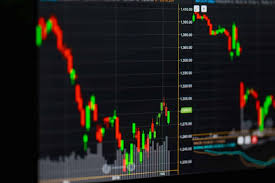
A Comprehensive Guide to Forex Trading: Strategies and Tips for Success
Forex trading, or foreign exchange trading, is a dynamic and exciting financial market that attracts millions of traders globally. As the largest financial market in the world, with a daily trading volume exceeding $6 trillion, the opportunities for profit are immense. However, with great opportunity comes significant risk. This guide will cover essential aspects of Forex trading, including broker selection, trading strategies, risk management, and psychological aspects that can impact your trading decisions. To begin, it’s crucial to choose a reliable trading platform. If you’re in Uzbekistan, consider checking out forex trading tutorial Uzbekistan Brokers for local options.
Understanding Forex Trading
The Forex market operates 24 hours a day during the weekdays, allowing traders to buy and sell currencies based on their predicted movements. Unlike stock trading, which takes place on a physical exchange, Forex trading occurs over-the-counter, meaning transactions are made directly between parties, typically through a network of banks, brokers, and financial institutions.
How Forex Trading Works
In Forex trading, currencies are traded in pairs, such as EUR/USD (Euro/US Dollar) or GBP/JPY (British Pound/Japanese Yen). The first currency in the pair is known as the base currency, while the second is the quote currency. The price of a currency pair reflects how much of the quote currency is needed to buy one unit of the base currency.
Choosing a Forex Broker
Selecting a reliable Forex broker is crucial for your trading success. Here are some key factors to consider:
- Regulation: Ensure your broker is regulated by a reputable authority. This gives you some degree of safety as it ensures the broker adheres to certain financial standards.
- Trading Platform: A user-friendly trading platform is essential. Most brokers offer platforms like MetaTrader 4 or MetaTrader 5, which provide various tools and resources for traders.
- Spreads and Commissions: Look for brokers with competitive spreads and low commissions, as these can significantly impact your profitability.
- Customer Support: Reliable customer support is vital, especially for new traders who may face challenges.

Developing a Trading Strategy
A sound trading strategy is fundamental in Forex trading. There are several popular trading strategies you can consider:
- Day Trading: Involves making multiple trades within a day, with positions being closed before the market closes to minimize exposure to overnight risk.
- Swing Trading: Focuses on capturing short- to medium-term moves in the market, holding positions from days to weeks.
- Scalping: A high-frequency trading strategy where traders aim to profit from small price changes, often executing dozens or hundreds of trades in a single day.
- Position Trading: A long-term strategy where traders hold positions for weeks, months, or even years based on fundamental analysis.
Risk Management in Forex Trading
Effective risk management is essential in Forex trading to protect your capital. Here are some strategies:
- Use Stop Loss Orders: These orders automatically close your position at a predetermined price level to limit potential losses.
- Risk-to-Reward Ratio: Aim for a risk-to-reward ratio of at least 1:2, meaning for every unit you risk, you aim to gain at least two units.
- Diversification: Avoid putting all your capital into a single trade or currency pair. Diversifying can help mitigate risks.
- Position Sizing: Determine how much of your trading capital you will risk on each trade, typically 1-2% of your total capital.
The Psychological Aspect of Forex Trading
Forex trading is not just about technical and fundamental analysis; psychology plays a significant role. Traders must manage emotions such as fear and greed, which can lead to impulsive decisions. Here are some tips to maintain a healthy trading mindset:
- Stick to Your Plan: Consistency is key. Adhere to your trading plan and avoid making decisions based on emotion.
- Accept Losses: Losses are a part of trading. Accept them and learn from your mistakes instead of letting them dictate your trading behavior.
- Stay Informed: Continuous learning and staying updated on market news and trends can help you make informed decisions.
- Take Breaks: If you find yourself feeling overwhelmed or frustrated, take a break to clear your mind.
Conclusion
Forex trading can be a rewarding venture if approached with knowledge and discipline. Understanding the market, selecting a reputable broker, developing a sound trading strategy, managing risks, and keeping your trading psychology in check are all essential components of success. Remember that continuous education and practice are vital for improving your trading skills. Whether you’re a novice trader or a seasoned pro, always be ready to adapt and learn from the ever-changing market dynamics.